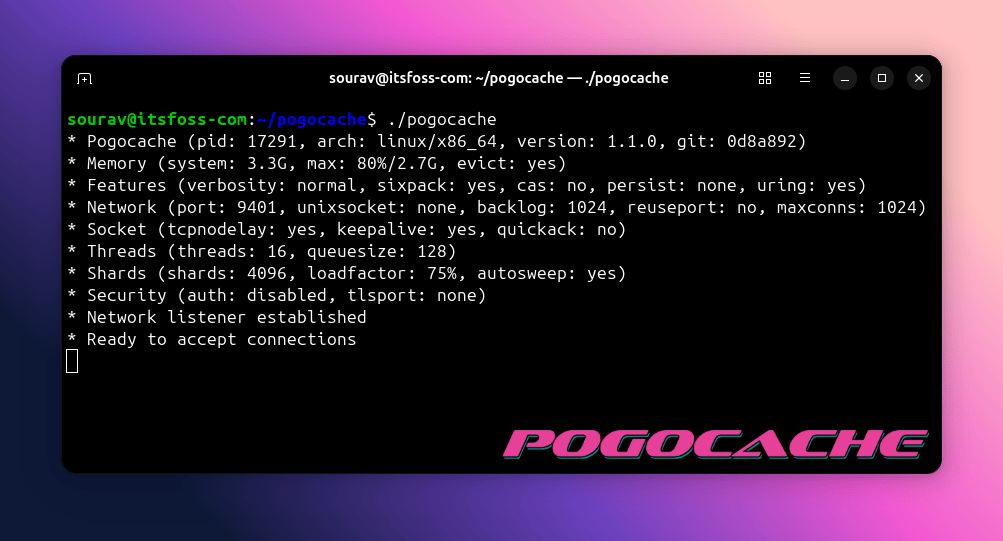
Caching systems are critical in modern applications, speeding up data access and reducing database load. The space has known names like Redis, Memcached, Valkey, Dragonfly, and Garnet, who have established themselves with reliable performance and broad adoption across industries.
And now, there's a new contender that aims to offer fast, flexible caching while supporting protocols that developers already use.
Pogocache: A Fresh Approach

Pogocache is a C-based, open source cache server built for speed and simplicity. It supports multiple protocols and offers exceptionally low latency while integrating seamlessly with existing tools and client libraries.
It can run as a standalone server or be embedded into applications via a single C file. In embedded mode, it can perform more than a hundred million operations per second with minimal overhead.
Pogocache is released under the AGPL-3.0 license, ensuring it remains open and community-friendly, and the project is maintained by Josh Baker (Tidwall), who has created high-performance database tools in the past.
It supports HTTP, the Memcache protocol used by Memcached, Redis’s RESP, and Postgres-style wire protocols. This means that developers can use curl, psql, or Redis clients without needing to learn new APIs.
As for its performance, in benchmarks conducted on an AWS c8g.8xlarge instance, Pogocache achieved 3.14 million queries per second (QPS), surpassing Memcache (2.60M QPS), Redis (1.51M QPS), Valkey (1.33M QPS), Dragonfly (1.41M QPS), and Garnet (1.54M QPS).
Currently, Pogocache’s free Community edition is open source and available now. A managed Cloud edition is in development with automated scaling and backups, while the Enterprise option offers on-prem and private cloud deployments with commercial support.
Get Pogocache
The source code for Pogocache is hosted on GitHub, and you can get it for your Linux server by following one of the two installation methods mentioned below.
The first method is to install it using Docker. After ensuring that you have the prerequisites, you can run this command:
docker run --net=host pogocache/pogocacheFor the second method, you will have to build Pogocache from source. First, clone the Git repo:
git clone https://github.com/tidwall/pogocache
Next, switch to the directory where you downloaded the files, usually Downloads:
cd DownloadsNow, run this to build Pogocache:
makeIf everything goes smoothly, you can run the following command to run it:
./pogocacheAfter this, check the official documentation for additional resources on configuring Pogocache.
- Even the biggest players in the Linux world don't care about desktop Linux users. We do.
- We don't put informational content behind paywall. Your support keeps it open for everyone. Think of it like 'pay it forward'.
- Don't like ads? With the Plus membership, you get an ad-free reading experience.
- When millions of AI-generated content is being published daily, you read and learn from real human Linux users.
- It costs just $2 a month, less than the cost of your favorite burger.
Become a Plus Member today and join over 300 people in supporting our work.










